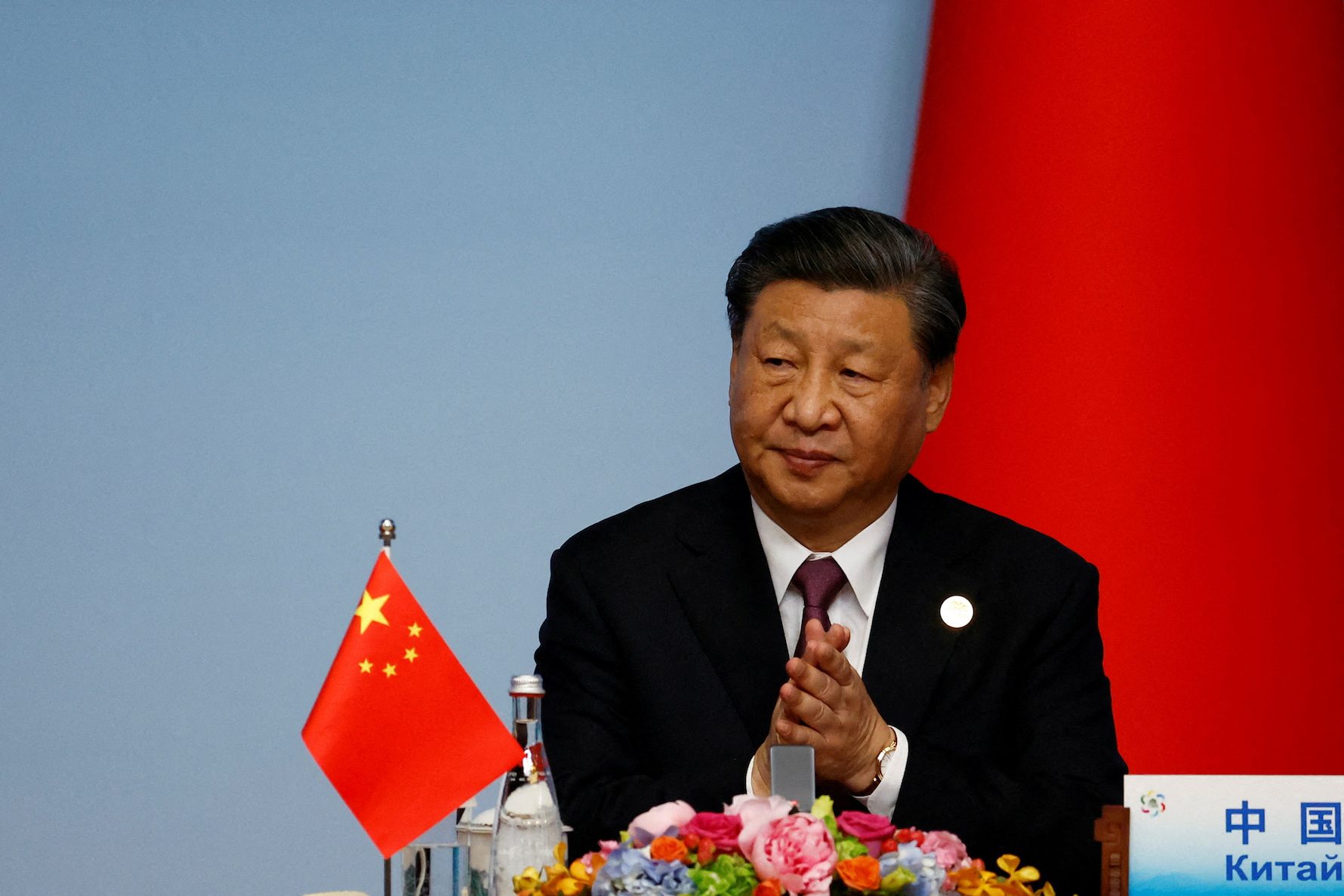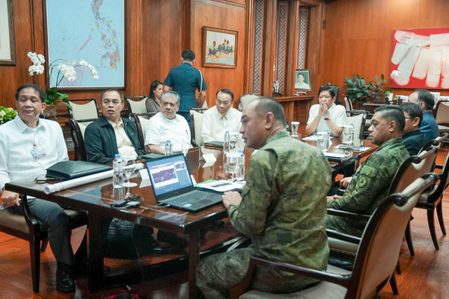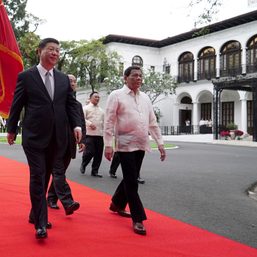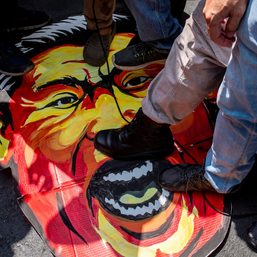SUMMARY
This is AI generated summarization, which may have errors. For context, always refer to the full article.

MANILA, Philippines – China’s aggressiveness in pushing for its claims in the South China Sea stems from President Xi Jinping’s goal to assert his country’s status as a global superpower.
In a Rappler panel discussion on October 27, Friday, former presidential political adviser Ronald Llamas explained that Xi veered away from the “dominant foreign policy [that] was basically shaped by the dominant ideology since the time of [former leader] Mao Zedong.”
“Medyo game-changing si Xi kasi throughout that time, ang dominant foreign policy ng China ay huwag makipag-compete sa Western power, let us outwait them,” Llamas said during the discussion that tackled the altercation last October 22 in the Ayungin Shoal.
“Noong naging presidente si Xi, dyan na pumasok ang aggression, ang pagiging aggressive, ang wolf diplomacy,” he said.
(Xi was game-changing because China’s dominant foreign policy then was not to compete with Western power, let’s outwait them. But when Xi became president, that’s when aggression came in, wolf diplomacy, they became more aggressive.)

Llamas was talking from his experience working as adviser to then-president Benigno Aquino III, who filed the arbitration case against China in 2013 following an April 2012 standoff between Philippine and Chinese vessels in the Scarborough Shoal.
An arbitral tribunal of the Permanent Court of Arbitration in The Hague, Netherlands eventually ruled, among others, that China’s claim of historic rights to resources in areas within its nine-dash line had no basis in law.
But Aquino was not always seen as the one who stood up against China. Llamas recalled that in the beginning, he was seen as often deferring to China. There were incidents in Philippine waters, including poaching, that were solved by talking.
When tensions escalated following the 2012 Scarborough Shoal standoff, Llamas recalled meeting with officials from the Chinese Communist Party to “break the ice.”
“Doon ko nahalata na iba na ang kanilang attitude, sabi nila, (That’s when I noticed their changed attitude, they said) ‘You can’t do this to us now, we are now a superpower,’” Llamas said. “It’s [an] about-face, it’s no longer about iyong dating kaayusan (old ways) or unspoken arrangement.”
China did not agree to the international arbitration and does not recognize the arbitral tribunal’s ruling. It has continuously asserted its presence in the West Philippine Sea, leading to several incidents of harassment, including attempts to block resupply missions to a Philippine outpost in Ayungin Shoal or Second Thomas Shoal.
Just last October 22, a boat contracted by the Philippine military for a resupply mission to the BRP Sierra Madre in Ayungin Shoal collided with a China Coast Guard (CCG) vessel. The Philippines said this was caused by the Chinese vessel’s “dangerous blocking maneuvers.” In August, the CCG used water cannons against Philippine ships.
“Part ito ng scaling up, kaya nag kaba ko: ano ang susunod after ramming, water cannon, barrier, laser?” Llamas said. “Iyan ang nakakatakot.”
(These are all part of scaling up. So I’m anxious what would come after ramming, water cannons, using barriers and lasers. That’s scary.) – Rappler.com
Add a comment
How does this make you feel?







![[Just Saying] SONA 2024: Some disturbing points](https://www.rappler.com/tachyon/2024/07/TL-marcos-sona-points-july-23-2024.jpg?resize=257%2C257&crop=335px%2C0px%2C720px%2C720px)

![[Vantage Point] China’s silent invasion of the Philippines](https://www.rappler.com/tachyon/2024/07/TL-china-silent-invasion-july-16-2024.jpg?resize=257%2C257&crop=318px%2C0px%2C720px%2C720px)




There are no comments yet. Add your comment to start the conversation.